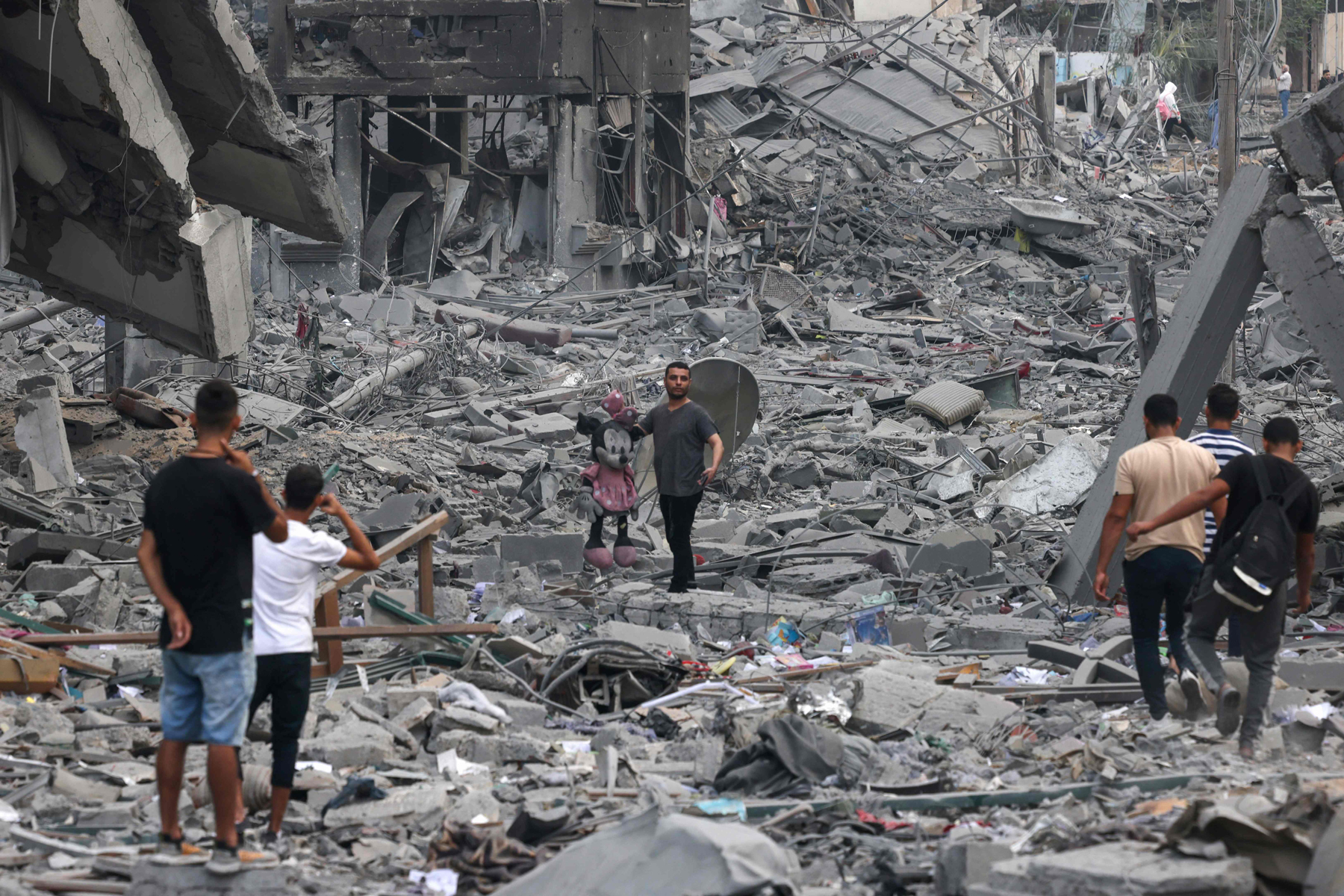
Rohit K. Sharma
Kathmandu, Nov 12: The two-state solution has long been considered the most viable and equitable path to resolving the Israel-Palestine issue, as it seeks to establish separate and independent states for both Israelis and Palestinians. This approach is rooted in the idea of self-determination, allowing each people to govern themselves and live in peace and security. By delineating clear borders and recognizing the sovereignty of both nations, it offers a framework for a lasting peace settlement.
The two-state solution acknowledges the historical and cultural ties of both Israelis and Palestinians to the land, and it envisions a future where both can coexist side by side, respecting each other’s rights and identities. International consensus and diplomatic efforts have often revolved around this solution as it aims to address the fundamental concerns and aspirations of both parties.
The Israeli-Palestinian conflict is spreading turmoil and division throughout the world. In several Middle Eastern countries, including Pakistan and Bangladesh, tens of thousands of people demonstrated in favor of Palestine and against the US and Israel. The growth of internal anti-Semitism and tensions within diverse populations is a concern for several European countries. The latest round of hostilities between Israel and the Palestinians is proving to be more devastating than a “storm in a teacup.” Social media has polarized people’s opinions about the Israeli-Palestinian issue, and the propagation of hate speech and misleading information has increased the divide between the two sides.
The incursion of Hamas-affiliated fighters into Israel from Gaza has caused more controversy than resolution in terms of international diplomacy. Global human sorrow has been sparked by the horrific deaths and suffering on both sides, but while anger is understandable, it is not the appropriate reaction.
Blame-shifting has been the initial response, which was quickly followed by the all-too-natural urge to wreak revenge in return. However, this is the only way to experience more grief and violence. Even as the violence intensifies, we should take advantage of the catastrophe presently occurring in Gaza as the horrified world watches in order to work toward peace, even how unbearably painful and counterintuitive it must seem at times.
Governments have rallied to Israel’s defense almost without fail: a snap decision that disregards the bigger picture. It conflated general support for one side over the other in this intricate dispute with empathy for the carnage.
Unfortunately, at least as long as Israel is willing to carry out its self-declared “war” on the coastal strip that more than 2 million Palestinian civilians call home and as long as Western countries are willing to support this, such a course of action appears doubtful. Similar to this, there will be enormous obstacles to peace as long as there are people who reject Israel’s right to exist. But the alternative—constant warfare—is equally unimaginable.
It is imperative to recognize that at now, there isn’t a potent global force capable of significantly advancing a ceasefire and bringing an end to the conflict. All nations must work together to achieve this, and the major powers with the most clout internationally ought to lead by example. It should be noted that Washington has a particular obligation to carry out the agreement on averting a humanitarian catastrophe in the Gaza Strip.
The carnage from the ongoing fighting already appears to have surpassed the thousands of deaths that occurred during the Gaza Wars in 2008–2009 and 2014. After Hamas launched missiles at Israel and its militants carried out vicious and terrifying attacks, Israel is launching what appears to be a search and destroy operation, gathering hundreds of thousands of troops in anticipation of a land invasion. However, very few people are demanding that the fighting end. In order to effectively stop more killing, peace must come before accountability. Right now, the majority of voices in the West seem to be focusing on quick fixes that seem to support retaliation, when what is actually needed are thoughtful analyses that aim to end conflicts rather than escalate them.
In response to the most recent Israel-Palestine crisis, Washington sent five guided missile destroyers and cruisers, as well as the aircraft carrier Gerald R. Ford, hurtling toward the eastern Mediterranean. US Defense Secretary Lloyd Austin declared Washington’s “ironclad support” for Israel and issued an order for USAF fighter jets to be sent into the area “to bolster regional deterrence efforts.” Similar promises were given by Secretary of State Antony Blinken, and President Joe Biden reiterated the United States’ steadfast, “rock solid and unwavering” support to Israel. All of this is on top of the $38 billion in military aid that the US has promised Israel between 2019 and 2028, as promised by President Obama in 2016.
There was confusion in Europe when one official claimed that the EU had stopped giving the Palestinians $691 million in development aid ($730 million), despite the fact that this would be a war crime and a collective punishment for the civilians. However, another official denied that the payments were being stopped. In a related development, Austria declared that payments had been stopped, while Germany declared that its financial assistance to the Palestinians will be examined. Prime Minister Rishi Sunak of the UK pledged military, diplomatic, intelligence, and security cooperation as well as “steadfast support.” The declarations “We stand with Israel” were made by French President Emmanuel Macron, German Chancellor Olaf Scholz, and Canadian Prime Minister Justin Trudeau.
We want to see an increasing number of nations align with the principles of international law, peace, fairness, the common goals of most nations, and human conscience. This is a sensible approach to maintaining peace and security in the Middle East and around the world, in addition to trying to prevent aggravating the humanitarian situation in the Gaza Strip as much as possible.
Despite the numerous challenges and obstacles that have hindered the implementation of the two-state solution over the years, it remains a compelling option because it is viewed as the best path towards a just and lasting peace in the region. This approach takes into account the realities on the ground, ensuring security and stability for Israelis and self-determination for Palestinians. It also opens the door for meaningful negotiations on critical issues such as borders, the status of Jerusalem, and the rights of refugees. While achieving a two-state solution is undoubtedly complex and requires the willingness of both sides to compromise, it offers the best chance for a future where Israelis and Palestinians can coexist in separate, secure, and prosperous states, ultimately fostering a more peaceful and stable Middle East.
















